Table of Contents
L-Theanine (r-glutamylethylamide) is a non-dietary amino acid found in green tea (camellia sinensis), and the mushroom Xerocomus badius. Structurally, L-Theanine is similar to the neurotransmitters l-glutamate and l-glutamine.
L-Theanine easily crosses the blood-brain barrier. And taken as a supplement or by drinking green tea, reaches your brain within 30-45 minutes.
L-Theanine can lower blood pressure, rejuvenate and relax you, boost your ability to think, improve focus and change your mood. L-Theanine balances brain chemistry and improves cognitive health.
L-Theanine helps:
- Brain Waves. L-Theanine boosts alpha brain waves (8-12Hz) promoting alert relaxation.[i] And theta brain waves associated with creativity and relief from trauma.
- Neurotransmitters. L-Theanine increases GABA, serotonin and dopamine levels in your brain. Producing an energizing and calming effect. And improving cognition and memory.
- Neuroprotection. L-Theanine is an agonist of NMDA receptors and can inhibit synaptic release of glutamate. Protecting your brain from over-stimulation caused by glutamate, and possible glutamate toxicity.
Overview
L-Theanine (r-glutamylethylamide) is a non-dietary amino acid found in tea. And especially high levels in green tea (camellia sinensis). L-Theanine was first isolated from green tea in Japan by Sakato in 1949.
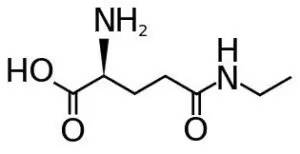
As an analogue of glutamate and glutamine, it’s hydrolyzed in your intestine and liver into l-glutamate and ethylamine. And easily crosses your blood-brain barrier.
L-Theanine is one of the very few nootropics known to modulate brain waves. It affects alpha brain waves which are associated with relaxation. Providing an alert calmness, L-Theanine helps in promoting super-learning, flow states and joy.
L-Theanine boosts the neurotransmitters serotonin, dopamine and GABA in your brain. As well as increasing Brain-Derived Neurotrophic Factor (BDNF) and Nerve Growth Factor (NGF).[ii]
L-Theanine is known for helping to relieve stress, improve cognition, boost mood and cognitive function.
How does L-Theanine work in the Brain?
L-Theanine boosts brain health and function in several ways. But two in particular stand out.
- L-Theanine reduces physical and mental stress. L- Theanine helps increase alpha brain waves which are associated with mental relaxation and concentration.
One study in South Korea worked with 20 healthy male volunteers aged 18 – 30 years. One group was given L-Theanine tablets, and the other group a placebo daily for 7 days.
Brain waves were measured 40 minutes after administration of the tablets. The researchers analyzed alpha wave power values. And concluded that L-Theanine tablets promoted the release of alpha brain waves related to mental relaxation and concentration.[iii]
In May 2016, researchers at Simon Fraser University in Canada developed a technology to clinically measure brain wave patterns. With this technology, we’re now able to detect cognitive dysfunction before it happens. Imagine the implications of this new technology when applied to the nootropics world.[iv]
- L-Theanine increases neurotransmitters. Research shows that L-Theanine increases dopamine, serotonin, and GABA in your brain.[v] And it reduces the excitatory neurotransmitter glutamate which is associated with stress, tension and agitation.[vi]
A study done in Japan worked with 12 people who underwent 4 separate trials. One in which they took L-Theanine at the start of the experiment. One in which they took it half-way through. And two control trials in which they took either a placebo or nothing.
The results showed that L-Theanine resulted in a reduction in heart rate and s-IgA associated with acute stress. The researchers concluded that L-Theanine could cause anti-stress effects via the inhibition of cortical neuron excitation.[vii]
How things go bad:
As we get older, our brain chemistry and energy metabolism changes.
↓ Neurotransmitter levels decline
↑ Glutamate levels increase
↑ Stress levels increase
↓ Long-term memory and mood decline
↓ Quality of sleep declines
All of these changes can happen at any age once we reach adulthood. And are contributing factors to the neurodegenerative diseases of aging, and quality of life.
L-Theanine benefits
L-Theanine energizes without draining, calms without putting you to sleep, and motivates without causing a jagged edge.
 Tea (as a source of L-Theanine) can have as much caffeine as some coffees. And yet doesn’t exert the same “speedy” effect. And the reason is the ingredient L-Theanine.
Tea (as a source of L-Theanine) can have as much caffeine as some coffees. And yet doesn’t exert the same “speedy” effect. And the reason is the ingredient L-Theanine.
You can actually see L-Theanine’s effect in your brain using an EEG. Brain waves are smoothed out rather than flattened out.[viii] So your body is relaxed, your mind is calmed, but you don’t get sleepy. And L-Theanine, once it crosses the blood-brain barrier, raises levels of serotonin and dopamine.[ix]
L-Theanine even improves your quality of sleep. Researchers in Japan gave volunteers 200 mg of L-Theanine daily and recorded their sleep patterns. Sleep quality, recovery from exhaustion, and feeling refreshed were all enhanced by L-Theanine.[x]
And L-Theanine puts you in a better mood. Once it crosses your blood-brain barrier, L-Theanine changes levels of amino acids affecting serotonin, dopamine, and GABA. Having a modulating effect on mood.[xi]
How does L-Theanine feel?
Your unique neurochemistry including neurotransmitters, brain waves, brain structure and even regional brain activity will influence your response to L-Theanine.
Most neurohackers report a calming effect within 30 – 45 minutes of taking L-Theanine. Cognition gets a boost, and energy levels rise without the jitteriness caused by stimulants like caffeine.
Some report L-Theanine has stopped their anxiety and panic attacks. Just don’t combine it with anti-anxiety meds like Xanax.
Most report an overall improvement in the sense of well-being and quality of life. And nearly all remark on better quality sleep.
L-Theanine Clinical Research
Green Tea reduces incidence of stroke
Research has found that if L-Theanine is present in the body at the time stroke occurs, brain damage will be significantly reduced.
In this monster study done in China, researchers selected 14,212 subjects from 12 provinces. Ages ranged from 35 – 60 years old. The study looked at tea drinking status, dose and type of teas.
This study concluded there was a 40% decreased risk of stroke in those who drank green, black or jasmine teas.[xii]
L-Theanine improves memory
In this double-blind, placebo-controlled study, the effect of L-Theanine on memory and attention was investigated.
91 subjects with mild cognitive impairment were enrolled in this study. One group received 1,680 mg of L-Theanine daily for 16 weeks. And the control group received a placebo.
The study concluded that L-Theanine increased brain Theta waves associated with cognitive alertness and creativity. And there were improvements in memory. The results of this study suggested that L-Theanine has potential as an intervention for cognitive improvement.[xiii]
And that is an understatement by any stretch. People spend years meditating. With the goal of reaching consistent access to brain wave states like Theta. In this trial, they did it with a dose of L-Theanine. The same type of dose you could get with a few cups of quality green tea.
L-Theanine reduces stress
Considerable research has been dedicated to L-Theanine and its benefits to stress reduction in both animal and human studies. And we have ample documentation that corticosterone and stress exert negative effects on memory.[xiv]
Corticosteroids which are secreted after stress, have a profound impact on long-term potentiation and memory formation.[xv]
In this animal study, rats were fed water containing L-Theanine for 3 weeks and put through some stress inducing exercise. The researchers found that corticosterone levels were lower in the rats who used L-Theanine compared to those who had none.
In fact, stress had no effect on the animals who were fed L-Theanine. Memory was not affected. The researchers concluded that L-Theanine modified corticosterone secretion. And L-Theanine is a strong preventive measure in preventing memory loss otherwise induced by stress.[xvi]
L-Theanine Recommended Dosage
Recommended dosage of L-Theanine is 100 – 400 mg once or twice per day. With a maximum of 1,200 mg per day according to the Cleveland Clinic.[xvii]
L-Theanine is water soluble so you can take it with water.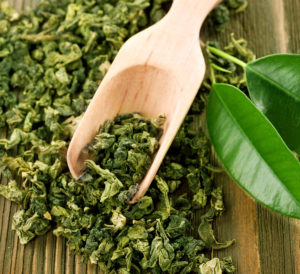
Labels on quality green tea often only display the amount of green tea leaf available in each bag in milligrams (mg). But not its L-Theanine content. Green tea that’s steeped correctly will offer 1-2% L-Theanine per cup. So 1,500 mg of green tea leaf would be about 30 mg. of L-Theanine (at 2%).
We often say that YMMV, and this is especially applicable to L-Theanine. Find out what works best for you. Start at a lower dose like 100 mg. And work your way up until you achieve the effects you’re looking for.
L-Theanine Side Effects
L-Theanine is a naturally occurring amino acid found in plants like tea or one species of mushroom. So it’s considered non-toxic and very safe.
Theanine seems to decrease blood pressure. So if you’re on meds for high blood pressure, use L-Theanine with caution. Your blood pressure could go too low.
Type of L-Theanine to Buy
L-Theanine is available in green, black and white teas. Green tea contains the most L-Theanine.
A great side benefit for neurohackers is green tea also contains caffeine. A cup of good quality green tea has less caffeine than a cup of coffee. About 10 mg less.
L-Theanine + Caffeine stack
One study done at Unilever in the UK looked at the combined effects of L-Theanine and caffeine on cognitive performance and mood. They compared 50 mg of caffeine with and without 100 mg of L-Theanine.
The research team had 27 volunteers participate. And based measurements on word recognition, rapid visual information processing, critical flicker fusion threshold, attentions switching and mood.
Performance was measured at the beginning, and again 60 minutes and 90 minutes after consumption. Separated by a 7-day washout period.
Caffeine improved alertness at 60 mins. And accuracy on attention-switching at 90 mins. The L-Theanine and caffeine combination improved both speed and accuracy, and reduced susceptibility to distracting information on the memory task.
The research team concluded that, “L-Theanine and caffeine in combination are beneficial for improving performance on cognitively demanding tasks”.[xviii]
And for an added bonus, L-Theanine takes the jittery-edge off of caffeine consumption.
The best pre-formulated caffeine + L-Theanine stack I’ve tried, and use is Click for Performance Lab® Caffeine 2 . It contains Natural Caffeine (from Coffea Robusta seeds) 50 mg, L-Theanine 100 mg, L-Tyrosine 250 mg, with a balanced NutriGenesis® B-Complex. For alert clean energy without the jitters.
L-Theanine from green tea
Extracting the optimal amount of L-Theanine from green tea is both art and science.
Researchers at the University of Newcastle in Australia set out to determine optimal conditions for water extraction of L-Theanine from green tea. They examined 4 different extraction methods. And learned that temperature, extraction time, ratio of water-to-tea and tea particle size had significant impacts on extraction yield of L-Theanine from green tea.
They concluded, “The optimal conditions for extracting theanine from green tea using water were found to be extraction at 80 °C for 30 min with a water-to-tea ratio of 20:1 mL/g and a tea particle size of 0.5-1 mm.” [xix]
So to get the most nootropic value when using green tea as your L-Theanine source – follow the directions. Just sayin’…
L-Theanine Supplements
L-Theanine is available in capsule or tablet form from several supplement manufacturers. Japanese company Taiyo is the oldest and most established company in the green tea supplement industry. Taiyo developed and patented a method for L-Theanine extraction from green tea called ‘Suntheanine®’.
Research has shown that some supplement makers using their own extraction method for L-Theanine, contain more than just the “L” form of Theanine. Turns out if it’s not done exactly right, you end up with a “D” form of Theanine.
D-Theanine may have a very different action in your body than L-Theanine. We’re not saying it’s dangerous. You just may not get all the benefit of pure L-Theanine.
So read the labels and reviews by people who have tried the product.
I recommend Mind Lab Pro because it works. And addresses all aspects of anxiety resistance, memory and cognitive enhancement, stabilizes mood, brain repair, and maintenance.
This premium nootropic stack is designed to affect neurotransmitters, cognitive energy, brain waves, neuroprotection, and regeneration. See my Mind Lab Pro review for a detailed report.
You will also find L-Theanine in Click for Performance Lab® Caffeine 2 . It contains Natural Caffeine (from Coffea Robusta seeds) 50 mg, L-Theanine 100 mg, L-Tyrosine 250 mg, with a balanced NutriGenesis® B-Complex.
Nootropics Expert Recommendation
L-Theanine 100 – 500 mg per day
 I recommend using L-Theanine as a nootropic supplement.
I recommend using L-Theanine as a nootropic supplement.
Your body cannot make L-Theanine on its own. It’s a non-dietary amino acid only available from tea (and one little-known mushroom).
L-Theanine affects Alpha and Theta brain waves. This alone will help calm your mind, reduce stress, and help you stay alert. You’ll get even more cognitive benefit by stacking L-Theanine with caffeine.
L-Theanine helps boosts the neurotransmitters dopamine, serotonin, and GABA. Improving alertness and attention. And boosting cognition and memory.
And it reduces the excitatory neurotransmitter glutamate which is associated with stress, tension and agitation.
L-Theanine helps to prevent strokes, and even reduces the damaging effects if you’ve had a stroke.
And L-Theanine has been shown to improve sleep quality.
I suggest starting with a dose of 100 – 250 mg of L-Theanine daily for nootropic use. Using either a quality supplement, or high quality green tea.
Mind Lab Pro contains a synergistic blend of 11 brain enhancing nootropics covering all aspects of cognition and brain health. See my full Mind Lab Pro review for more.
Or for a smooth energy boost I recommend Click for Performance Lab® Caffeine 2 . For alert clean energy without the jitters.

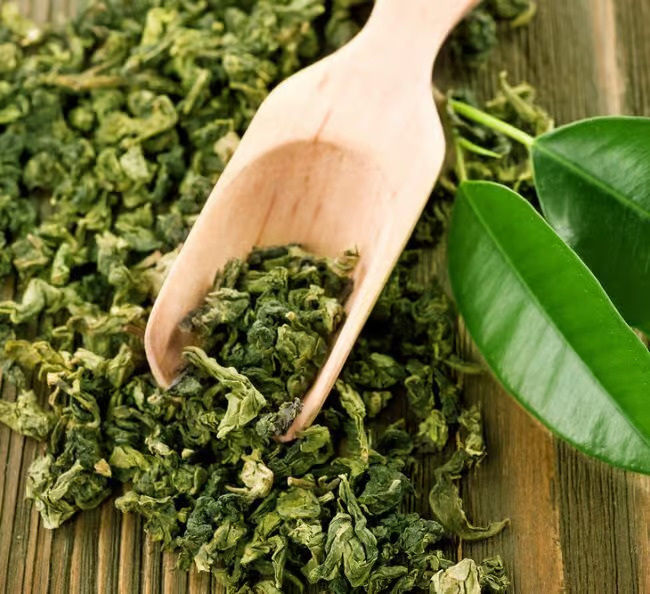
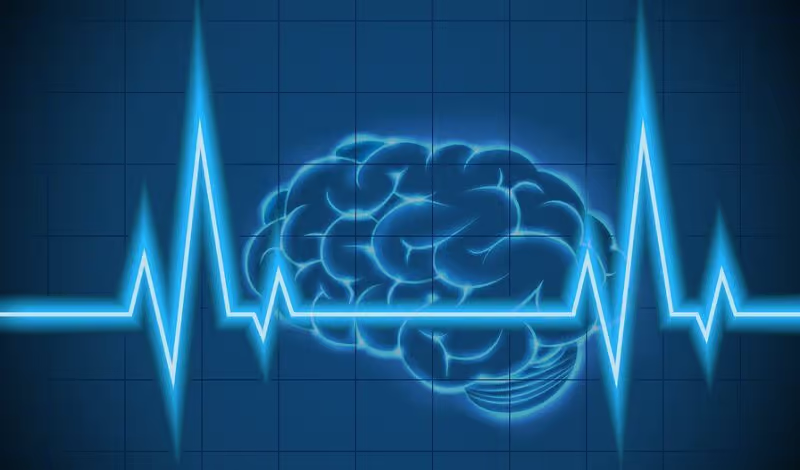
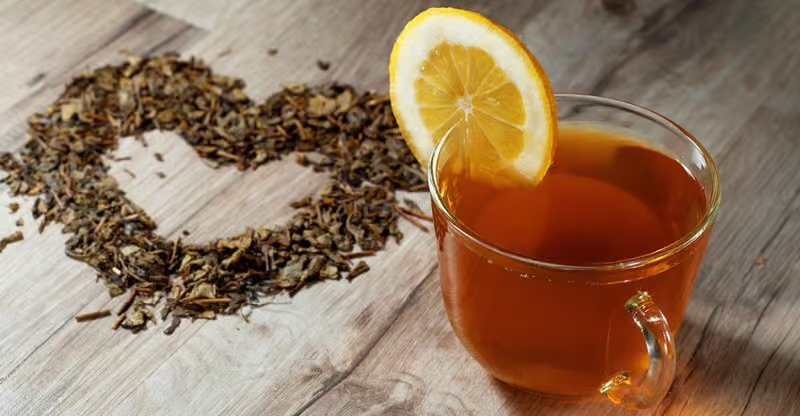





Join The Discussion - 335 comments
Aleksandar Ljubomir Novakovic
December 7, 2019
Hello David,
I tried Now Foods L-Theanine. It contains 100 mg Theanine+250 mg decaf green tea per capsule. I liked the effect but i get pretty unpleasent stomach upset (even when taking with food). So, can i take the content sublingually? And, if so, should I get the same effect and bypass side effects?
Thanks,
Aleksandar
David Tomen
December 9, 2019
Aledksandar, you can try it sublingually but don’t know if you’ll get the same effect. Because L-Theanine affects serotonin and GABA which are synthesized in your gut. Serotonin definitely and maybe even GABA according to some recent research.
So if you bypass your digestive system you may not experience everything L-Theanine has to offer. You may need to try a different supplement. It is likely the decaf green tea that is causing you problems.
Aleksandar Ljubomir Novakovic
December 9, 2019
Thanks, David!
Brigitte
November 16, 2019
Hi David, if you prefer having the tea, does it make a difference if it is made from leaves or as matcha powder? i.e. with matcha you fully ingest everything, is that enough to get the maximum L-Theanine?
David Tomen
November 17, 2019
Brigitte, loaded question because according to my research it depends on how you steep the tea. Researchers at the University of Newcastle in Australia found “The optimal conditions for extracting theanine from green tea using water were found to be extraction at 80 °C for 30 min with a water-to-tea ratio of 20:1 mL/g and a tea particle size of 0.5-1 mm.”
Only problem is you still cannot tell accurately how much L-Theanine or any other compound found in green tea that you are getting when relying on perfectly steeped tea as your source.
Eddie
October 26, 2019
Is it safe to be stacking L-theanine+ Caffeine with l-Threonate+ Magnesium?
I’m also taking ginko biloba on the side to improve memory and attention.
David Tomen
October 26, 2019
Eddie, it is certainly ‘safe’ and will work best by carefully following dosage recommendations.
Rupam Bhaduri
October 23, 2019
If I’m not having anxiety or depression but for unknown reason my body is in fight or flight mode and constantly sympathetic nervous system is on, then what is the ‘one’ supplement that could activate the parasympathetic nervous system?
Is this L-theanine or Rhodiola Rosea or Gaba or something else?
I’m already taking Ashwagandha and that does not help all the time, it just helps some of the times. I’ve to take high dose of Aspirin along with some high carb meal (fruits and Chocolate) and then I get some relief. Then life is beautiful again.
I had this issue ever since I tried the Keto diet. Even after stopping the Keto diet, my body automatically goes into fat burning mode very quickly and adrenal gets high. It chooses the stress metabolism instead of the respiratory metabolism. I had PTSD in my childhood, I completely reversed it with Lithium Orotate and with some Homeopathic medicines. After the treatment, I don’t get any anxiety attack and the “trauma” which I had, now seems insignificant to me. So, I’m over it.
I take Magnesium Glycinate 500mg 2 times a day and that helps temporarily. I think that it has something to do with the mind instead of the body because I’m sure that I don’t have any nutrition deficiency (any micronutrient) because I pay very close attention to what I eat and the nutrition facts of that and nutrient-nutrient interaction (everything possible).
So, my question is, is there any supplement that could calm my body down, promotes alpha-waves and most importantly activates parasympathetic nervous system?
David Tomen
October 24, 2019
Rupam, I can’t write you a ‘prescription’ for treating your symptoms of PTSD. Because while science has discovered how it re-wires our brain. Each of us is wired different, genetics and gene expression are unique, and I could go on …
It’ll take some experimenting to find the right 3-4 nootropic supplements you’ll need to restore optimal brain function. Please read this section I wrote on how PTSD works in your body and brain: https://nootropicsexpert.com/treating-post-hurricane-ptsd-with-nootropic-supplements/#post-traumatic-stress-disorder-and-your-brain.
Below that section is a list of nootropics. Please carefully read through that list and the brief descriptions of each nootropic. Then for the supplements that resonate with you, click through to the full review for a better understanding on how each works, how it feels, dosage recommendations, side effects and types to buy.
L-Theanine may be one of several that will help you. You already have some experience with trial and error. Keep at it until you get to where you want to be.
Kenneth
October 17, 2019
Hi David,
Is it ok to stack l-theanine with Pharmagaba?
I have found that regular Gaba does nothing for me but Pharmagaba produces a noticeable calming effect especially when taken with Magnesium Citrate.
Would adding l-theanine lead to Gaba overload?
Thanks,
Kenneth
David Tomen
October 17, 2019
Kenneth, maybe or maybe not. It depends on how much GABA your brain needs. What are your optimal GABA levels? I wish I had a more concrete answer but only way to find out for you is to try it. And see how you feel. I use all three and it works for me.
Carmen
September 28, 2019
Hi David,
Can I take Rhodiola with L-Theanine? I have read that they are contra-indicated. Is there a way to mix them in some ratio so they can synergistic?
Thank you
David Tomen
September 29, 2019
Carmen, I’ve not come across any research showing these two nootropics are contraindicated. But I can see why someone might think they were.
L-Theanine increases dopamine and serotonin. And Rhodiola Rosea acts as a MAOI which also increases dopamine and serotonin. If dosages were kept to the low end for both of them you’d not likely notice any side effects. While not clearly dangerous to use as a combo I’d watch for side effects associated with excess dopamine or serotonin.
Steve
September 22, 2019
Hi David,
Is there any problem of stacking L-Theanine 100 mg/2 times/day and Taurine 500 mg/2 times/day?
Thanks
David Tomen
September 23, 2019
Steve, dosing each of these twice a day is preferred to using them once a day.
Chris
September 13, 2019
Why can’t you take this with xanax? I’ve been taking 2mg only before bed to sleep. Have horrible insomnia. Would like to start taking L theanine with maybe only 1mg of xanax. I have checked for interactions and came up with none. But would like your incite.
I want to sleep but also want to wake up. The 2mg of xanax doesn’t always help and I’ve tried L theanine alone and still can’t sleep, that’s why I thought taking both may help more.
If the two combined making for more drowsy for me may be a good thing but again don’t want to die. I’m fearful of 99% of medications. xanax is the only med that didn’t make me dizzy and sick, I’ve never taking it any other time of day, just before bed.
So again why can’t both be taken together? Thank You.
David Tomen
September 13, 2019
Chris, Xanax affects the GABA type A receptor and so does L-Theanine. There is the potential for problems if this process is overdone. Combining the two is not likely to kill you but you need to be careful. Because you don’t what to go into a coma.
But is it’s insomnia that is your major issue then dealing with GABA is at most a partial solution. Please see my posts on sleep because you have other options available to you.
https://nootropicsexpert.com/best-nootropics-for-sleep/
https://nootropicsexpert.com/best-sleep-supplements-to-buy/
Adam
September 29, 2019
I just came across this article and cannot help by weighing in on this question and the answer given. No disrespect to you David at all as the author and researcher.
But my sister in-law along with 3 other people I know are taking both xanax (generic) and theanine together at about the same mg Chris is inquiring about and no one has fallen into a coma.
I sensed Chris’s fears and just thought the answer added to it. Sadly because of all the people abusing pain killeres and tranquilizers to do no more than get high, doctors are now not giving medications or cutting back on like xanax to the people that need it the most. Those suffering from panic attacks, as Chris is suffering with insomnia or just plain sever anxiety.
So people are resorting to natural things like theanine but still needing something added that is stronger. My sister in-law has been taking the exact dosage as Chris was asking about with both, she is really having a difficult time with severe stress. She never abused her medication, like chris only took it before bed but her doctor is now only giving her 1mg when she needed the 2 mg. I’m glad she didn’t see this question or the answer. She isn’t sleeping as well and has wanted to increase the theanine to 200 mg.
The other friends taking both are trying to stop the xanax period, all suffer with different degrees of anxiety and sleep problems. None abuse their meds. No one has gone into a coma. If they saw this they would have a panic attack, literally.
Gaba affects Gaba but people take that with 5-HTP and theanine. So myself I am puzzled at you stating both xanax and theanine affect the same gaba. I found an article on Gaba withdrawal. All this gets to be confusing and quite frank alarming at what really interacts with what.
People are just trying to get relief and like chris said not die. I don’t know if you will allow my comment (if you have waiting approval) but I hope so. No one I know taking both xanax or theanine have gone into coma’s.
This answer probably scared this guy to death. I understand the need for caution but I think you over did it. Again no disrespect intended, I just felt more clarity was needed.
David Tomen
September 29, 2019
Adam, no offense taken but I’m happy you brought this up. Because there is still this idea that if something is natural then it must be safe. You don’t need a prescription for it and it’s often made from plants. So how dangerous can it be?
The thing is research demonstrates one of the ways L-Theanine works to improve mood is because it increases levels of GABA, serotonin and dopamine in your brain. But Xanax along with every other benzo out there works on anxiety by increasing levels of GABA and its effectiveness in your brain to.
So if Xanax helps you feel good, then wouldn’t doubling or tripling your dose make you feel even better? That would be a little crazy to do because it could be dangerous. It’s a drug after all.
But you’re doing the same thing when combining a ‘natural’ substance like L-Theanine with a benzo like Xanax. Most of the time this shouldn’t be a problem. Especially if you kept it to low dosages. But everyone is different on how their system reacts to these nootropics and drugs.
I have no intention of scaring anyone. But it would be completely irresponsible of me to not explain how these things work. And what you need to be aware of before putting it in your body.
I suppose sometime I overdo it. But I’ve got readers literally in every country on this planet. Many with English not their first language. And most people are not as educated as you and I on ‘natural’ substances. Just because you can easily buy it in your local vitamin shop or supermarket does not make it safe. These are powerful supplements.
I have suffered personally from Serotonin Syndrome and know what it feels like. I also personally know someone who died from Serotonin Syndrome. So side effects and drug interactions must be included in most of the things I write about.
JQ
November 15, 2019
What if someone takes L-theanine in the morning and xanax at night? Is that still a problem?
David Tomen
November 16, 2019
JQ, studies have shown that the half-life of Xanax ranges from 6.3 to 26.9 hours. Chances are it would be too risky to try it. The thing is there is no hard data to back this up. It’s based on what we know about how Xanax works in the brain and how L-Theanine works.